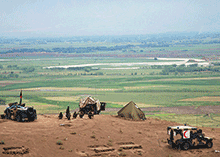
Building Trust in AI through Justice


Array
(
[thumbnail] => https://s42831.pcdn.co/wp-content/uploads/2022/09/hero-placeholder-150x150.png
[thumbnail-width] => 150
[thumbnail-height] => 150
[medium] => https://s42831.pcdn.co/wp-content/uploads/2022/09/hero-placeholder-300x129.png
[medium-width] => 300
[medium-height] => 129
[medium_large] => https://s42831.pcdn.co/wp-content/uploads/2022/09/hero-placeholder-768x329.png
[medium_large-width] => 768
[medium_large-height] => 329
[large] => https://s42831.pcdn.co/wp-content/uploads/2022/09/hero-placeholder-1024x439.png
[large-width] => 1024
[large-height] => 439
[1536x1536] => https://s42831.pcdn.co/wp-content/uploads/2022/09/hero-placeholder.png
[1536x1536-width] => 1400
[1536x1536-height] => 600
[2048x2048] => https://s42831.pcdn.co/wp-content/uploads/2022/09/hero-placeholder.png
[2048x2048-width] => 1400
[2048x2048-height] => 600
[gform-image-choice-sm] => https://s42831.pcdn.co/wp-content/uploads/2022/09/hero-placeholder.png
[gform-image-choice-sm-width] => 300
[gform-image-choice-sm-height] => 129
[gform-image-choice-md] => https://s42831.pcdn.co/wp-content/uploads/2022/09/hero-placeholder.png
[gform-image-choice-md-width] => 400
[gform-image-choice-md-height] => 171
[gform-image-choice-lg] => https://s42831.pcdn.co/wp-content/uploads/2022/09/hero-placeholder.png
[gform-image-choice-lg-width] => 600
[gform-image-choice-lg-height] => 257
)

When the UN’s 8th Open Working Group (OWG) on Sustainable Development Goals met in February to discuss conflict, governance, and the rule of law, it was clear that there were different views on how to frame the links between peace and development in the post-2015 agenda. While there is strong international consensus on the mutually reinforcing links between peace and sustainable development, a range of countries raised concerns around the risks of including peace in the post-2015 agenda. In particular, concerns were raised that this inclusion would lead to a diversion of development aid to international security objectives and to the subordination of international development to security.
The question of how to reflect the links between peace and development remains open, but there was sufficient support in the OWG to prompt the co-chairs to include in their draft Focus Area Document a section on “Peaceful and non-violent societies, and capable institutions.” This provides an opportunity for countries to continue to debate the links and how they should be reflected in the Sustainable Development Goals.
The potential benefits of incorporating a focus on peaceful societies and capable institutions in the post-2015 agenda are immense:
– The human cost of conflict and instability is profound. On a human and financial level, prevention through inclusive and sustainable development is surely better than cure.
– The potential pay-offs to incorporating outcomes around peaceful societies and capable institutions are potentially deeply transformative. For example, stable investment environments attract an additional estimated $250m-500m per year in FDI; and stemming illicit financial flows from Africa would save the continent nearly $1 trillion annually, which is seven times the volume of ODA. A focus on building peaceful societies and capable institutions around the world also provides an opportunity to consider how to equip all populations to manage the challenges of globalization and climate change, and to harness the benefits of development for each and every person living in conditions of conflict, instability, and vulnerability.
Whether peace and institutions become international “goals” in their own right or are reflected as “targets” mainstreamed across the Sustainable Development Goals is a question to be determined through negotiations. But it will surely be impossible for countries to agree a meaningful universal development agenda without reflecting the mutually reinforcing connections between peace, institutions, and development.
Publication Date:
Mar 05, 2014
Author(s):
Alejandra Kubitschek Bujones
Topic(s):
Peace Operations,
Post 2015 Development
Program(s):
Pathfinders for Peaceful, Just and Inclusive Societies


Subscribe to our newsletter and receive regular updates on our latest events, analysis, and resources.
"*" indicates required fields